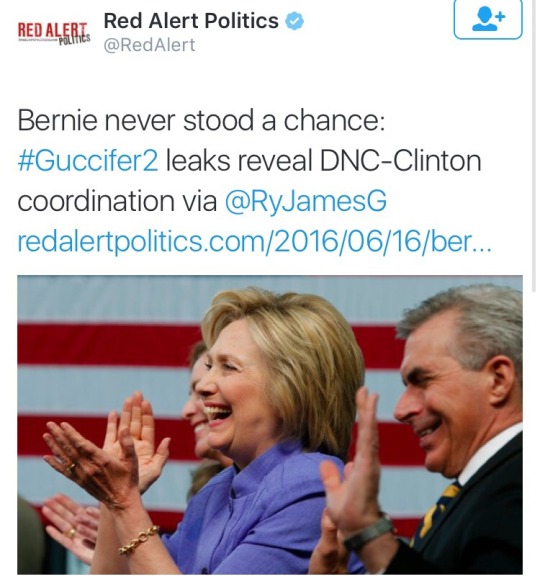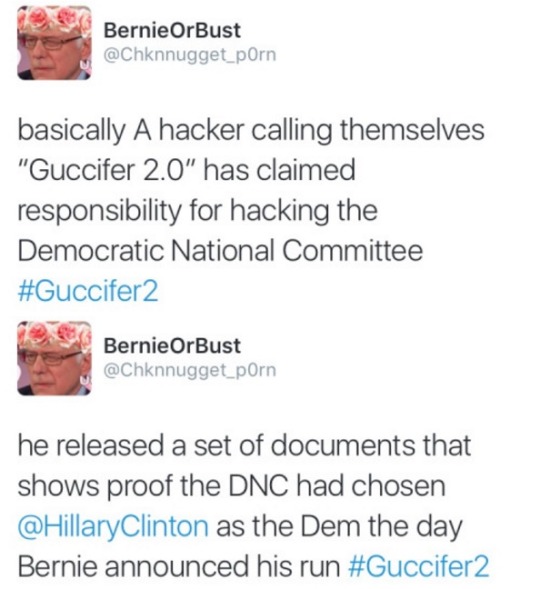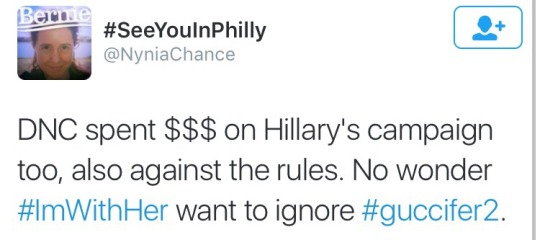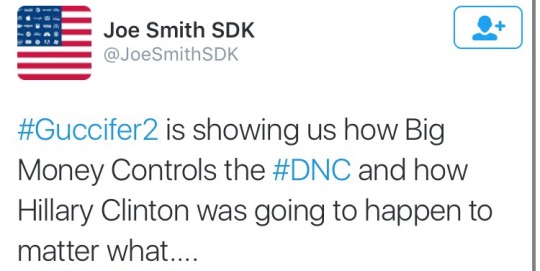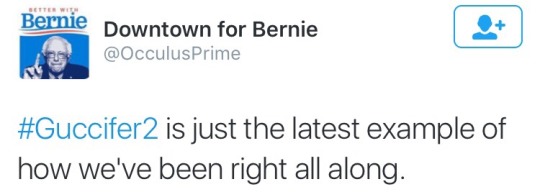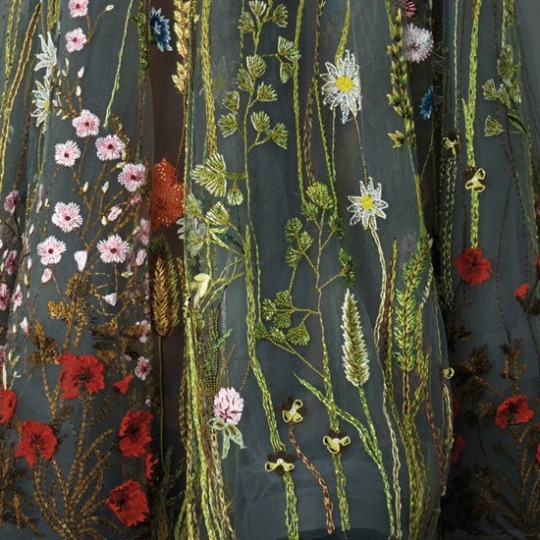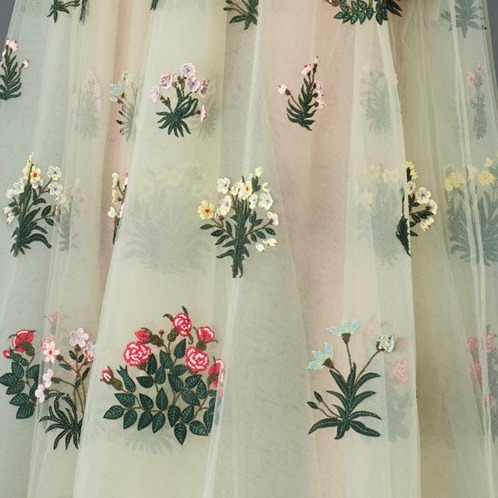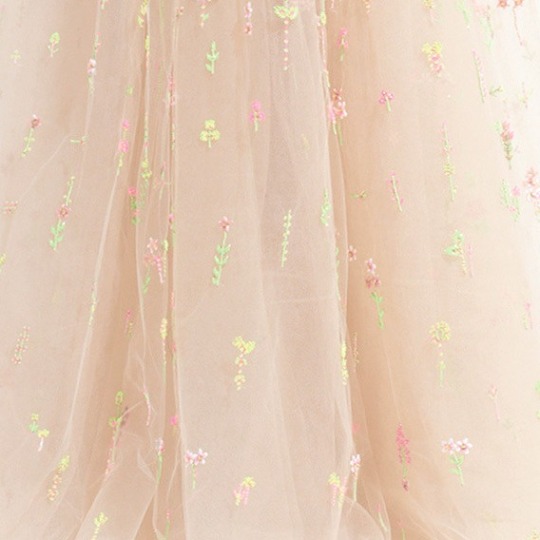24. Pan. Poly. Cis. She/Her. American. Bolivian/Welsh.
Don't wanna be here? Send us removal request.
Photo







Mark: Whether I’m gay or not has no reflection –
Owen: No, it does. Just listen –
Julia: I don’t think that you have ownership of horror of this crime.
Owen: Can I just say, I find this, I find this astonishing.
Julia: I’m not Jewish and I’m not gay, I’m not French, but I still am equally horrified by these crimes.
Owen: This was a – I’m being yelled at, which is incredible.
Julia: Stop talking so [we hadn’t do].
Mark: That’s the headline: ‘Isil wages war on gays in west’. Now you share that view, that basically this was deliberately targeted on one part of the community rather than the freedom to enjoy yourself no matter what your sexual orientation is.
Owen: What are you talking about?!?
Mark: I’m talking about the coverage in the newspapers.

Owen: It’s not some abstract, kind of, he just picked a random club out of nowhere. He picked a club because it was full of people he regarded as deviants. That’s why he attacked the club.
Julia: It’s a hate crime, this is an act of terrorism, it was an attack on gay people, absolutely, it was horrific. However, my mind guesses this man probably would be as horrified by me as a gobby woman as he would – genuinely, genuinely – this is the thing. We don’t know right now. We can speculate, but we don’t know how much of this is motivated by just his homophobia.
Owen: We heard from his own father about his revulsion – why are we trying to deflect? Why are you both pick-
Mark: We are not trying to deflect. We are trying to reflect what is being said by the authorities here and –
Owen: Can I ask, what argument are you trying to pick here?
Mark: I’m now going to quote from what The Telegraph is saying…’his father said…[he] may have targeted the gay community after becoming angry when he saw two men–’
Owen: ‘May have’? He did! Why are you saying this?
Julia: ‘After seeing two men kissing in Miami some months ago’ – he may have been angered by many other things since then!
Owen: I’m sorry. I just find this the most astonishing thing I’ve ever been involved with on television. If he’d walked into a synagogue, and massacred dozens of Jewish people, you wouldn’t be saying what you’re saying now.

Owen: This bizarre attempt to deflect from this –
Mark: We are trying to draw parallels in terrorist attacks on people who are being attacked whether they are enjoying rock music in Paris, whether they are gay people in Florida enjoying a night out.

Julia: I completely accept it, as [Mark] does, that it was a homophobic attack, but for me the issue is there are going to be homophobic people, there’ll be people who hate black people, or who hate gay people, or hate Jewish people. There are going to be people, who are lunatics, who are fanatics –
Owen: Who are “lunatics”! Stop using these words, Julia!
Julia: Is it possible for me to finish one sentence?
Owen: If you stop using words like “lunatic” to talk about homophobic terrorist attacks!

Julia: Well thank you. Whoever these people are, and whatever their motivations are, the key thing is we’re always going to have mad and bad people in the world.
Owen: Mad and bad people. Okay.
Julia: And the key issue is, that they can’t do too much or any harm. When you have free access to assault weapons in a country like America, then they’re able to put their hatred of other people –
Owen: Yes! Obviously!
Julia: – into effect, and do damage. That’s the issue for me.
(discussion between Mark and Julia on gun control and the U.S. …Julia: It is absolutely absurd, if America were not going to do something about gun control after Sandy Hook in 2012, if you’re going to watch six- and seven-year-olds being massacred and you don’t think you need to act, they are never going to act.)
Mark: There’s something else here in The Telegraph coverage, which I think we need to bring up, Owen, in relation to your point. And that is, I think that we’ve got at least a call from a spokesman for Stonewall saying that people would be feeling vulnerable, and basically indicating –
Owen: Oh, you’re going to have an LGBT voice talking about it. Interesting.
Mark: Sorry?
Owen: Nothing, carry on. Go on.
Julia: Owen, seriously.
Owen: I’ve had enough of this. I’m going home. Sorry. No way.
Julia: Owen, genuinely, we’re trying to have a civilized conversation.
Owen: I know you’re having it, I don’t want it!
Julia: I know you’re upset, you’re very upset –
Owen: Yeah, I am, I’m very upset. I’m very upset.
Julia: Everyone’s upset and angry about this, but storming off a TV set –

Owen Jones, Mark Longhurst, and Julia Hartley-Brewer discuss the Pulse nightclub shootings, 12 June 2016
112K notes
·
View notes
Photo









Holika Holika x Gudetama Makeup and Skin Care Collaboration
5K notes
·
View notes
Text
You swerve to avoid a squirrel. Unknown to you, the squirrel pledges a life debt to you. In your darkest hour, the squirrel arrives.
671K notes
·
View notes
Photo

Appearing like trenches dragged into the earth, sunken lanes, also called hollow-ways or holloways, are centuries-old thoroughfares worn down by the traffic of time. They’re one of the few examples of human-made infrastructure still serving its original purpose, although many who walk through holloways don’t realize they’re retracing ancient steps.
- Allison Meier in Atlas Abscura
122K notes
·
View notes
Text
the first time EVER scientists managed to spot a pair of deep sea octopi mating it turned out to be 1. two males and 2. two males of different species 3. the much smaller octopus was clearly topping. neither of the octopi showed any sign of distress, so they clearly were into it, and octopi are too smart not to know what they were doing. source
281K notes
·
View notes
Text
you ever hoist a big laundry basket on your hip and feel like the great tragedy of your life is that you weren’t born a hearty peasant girl in medieval england who’d die at 22 from an abscessed tooth
307K notes
·
View notes
Quote
as you know, the immune system walks a fine line between being absolutely useless and killing you
immunology professor this week (via hyacinth-willow)
I mean, a fever is basically your immune system going, “LET’S SEE WHO BURNS FIRST, MOTHERFUCKER.”
(via thebastardofgloucester)
#ALSO MOST DEADLY ILLNESSES ARE ONLY DEADLY BECAUSE YOUR IMMUNE SYSTEM IS TRYING TO HELP
(via fightthecoldwithspices)
73K notes
·
View notes
Link
Once slavery was abolished in 1865, manufacturers scrambled to find other sources of cheap labor—and because the 13th amendment banned slavery (except as punishment for crimes), they didn’t have to look too far. Prisons and big businesses have now been exploiting this loophole in the 13th amendment for over a century.
“Insourcing,” as prison labor is often called, is an even cheaper alternative to outsourcing. Instead of sending labor over to China or Bangladesh, manufacturers have chosen to forcibly employ the 2.4 million incarcerated people in the United States. Chances are high that if a product you’re holding says it is “American Made,” it was made in an American prison.
On average, prisoners work 8 hours a day, but they have no union representation and make between .23 and $1.15 per hour, over 6 times less than federal minimum wage. These low wages combined with increasing communication and commissary costs mean that inmates are often released from correctional facilities with more debt than they had on their arrival. Meanwhile, big businesses receive tax credits for employing these inmates in excess of millions of dollars a year.
While almost every business in America uses some form of prison labor to produce their goods, here are just a few of the companies who are helping prisoners pay off their debt to society, so to speak.
Whole Foods. The costly organic supermarket often nicknamed “Whole Paycheck” purchases artisan cheese and fish prepared by inmates who work for private companies. The inmates are paid .74 cents a day to raise tilapia that is subsequently sold for $11.99 a pound at the fashionable grocery store.
McDonald’s. The world’s most successful fast food franchise purchases a plethora of goods manufactured in prisons, including plastic cutlery, containers, and uniforms. The inmates who sew McDonald’s uniforms make even less money by the hour than the people who wear them.
Wal-Mart. Although their company policy clearly states that “forced or prison labor will not be tolerated by Wal-Mart”, basically every item in their store has been supplied by third-party prison labor factories. Wal-Mart purchases its produce from prison farms where laborers are often subjected to long, arduous hours in the blazing heat without adequate sunscreen, water, or food.
Victoria’s Secret. Female inmates in South Carolina sew undergarments and casual-wear for the pricey lingerie company. In the late 1990’s, 2 prisoners were placed in solitary confinement for telling journalists that they were hired to replace “Made in Honduras” garment tags with “Made in U.S.A.” tags. Victoria’s Secret has declined to comment.
Aramark. This company, which also provides food to colleges, public schools and hospitals, has a monopoly on foodservice in about 600 prisons in the U.S. Despite this, Aramark has a history of poor foodservice, including a massive food shortage thatcaused a prison riot in Kentucky in 2009.
AT&T. In 1993, the massive phone company laid off thousands of telephone operators—all union members—in order to increase their profits. Even though AT&T’s company policy regarding prison labor reads eerily like Wal-Mart’s, they have consistently used inmates to work in their call centers since ’93, barely paying them $2 a day.
BP. When BP spilled 4.2 million barrels of oil into the Gulf coast, the company sent a workforce of almost exclusively African-American inmates to clean up the toxic spill while community members, many of whom were out-of-work fisherman, struggled to make ends meet. BP’s decision to use prisoners instead of hiring displaced workers outraged the Gulf community, but the oil company did nothing to reconcile the situation.
From dentures to shower curtains to pill bottles, almost everything you can imagine is being made in American prisons. Also implicit in the past and present use of prison labor are Microsoft, Nike, Nintendo, Honda, Pfizer, Saks Fifth Avenue, JCPenney, Macy’s, Starbucks, and more. For an even more detailed list of businesses that use prison labor, visit buycott.com, but the real guilty party here is the United States government. UNICOR, the corporation created and owned by the federal government to oversee penal labor, sets the condition and wage standards for working inmates.
One of the highest-paying prison jobs in the country? Sewing American flags for the state police.
42K notes
·
View notes
Text
secondhand embarrassment is pure agony and i wish a lot of comedy didnt rely on it
512K notes
·
View notes
